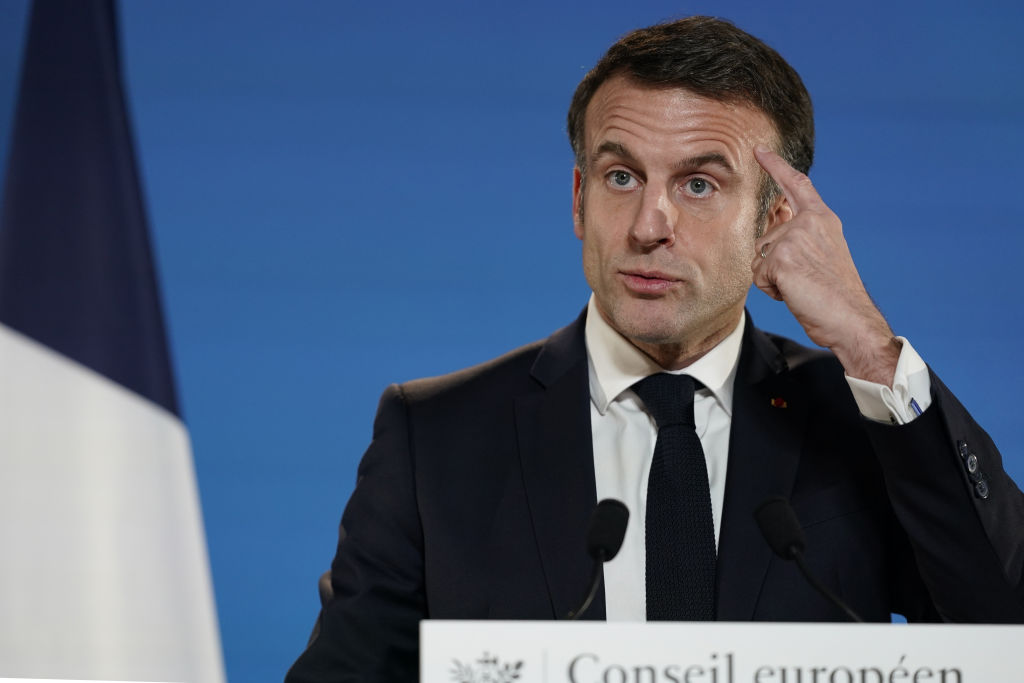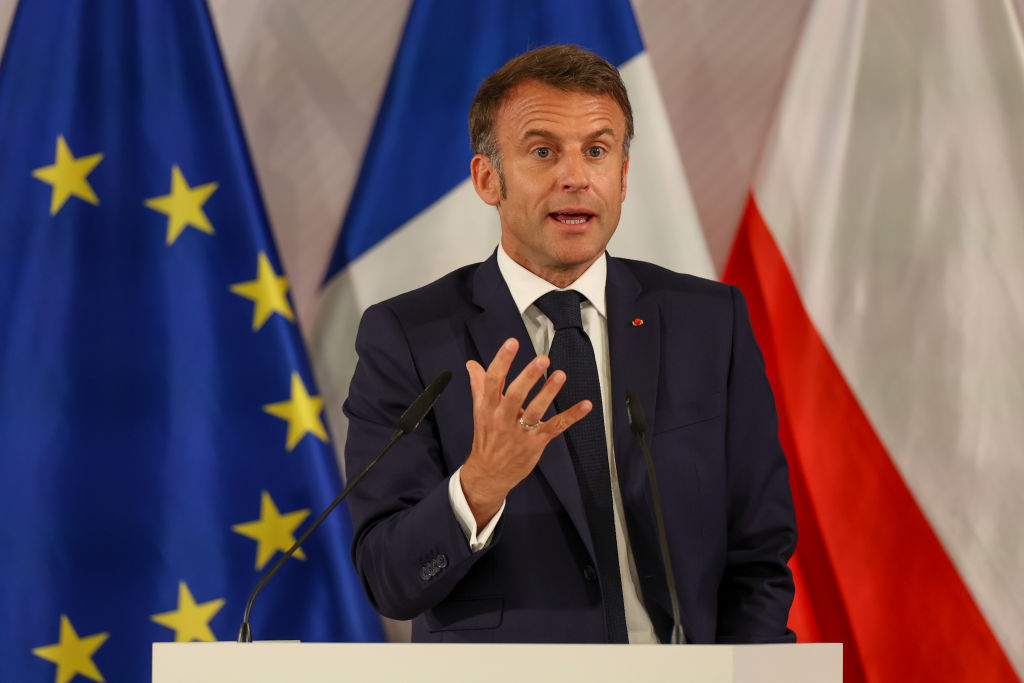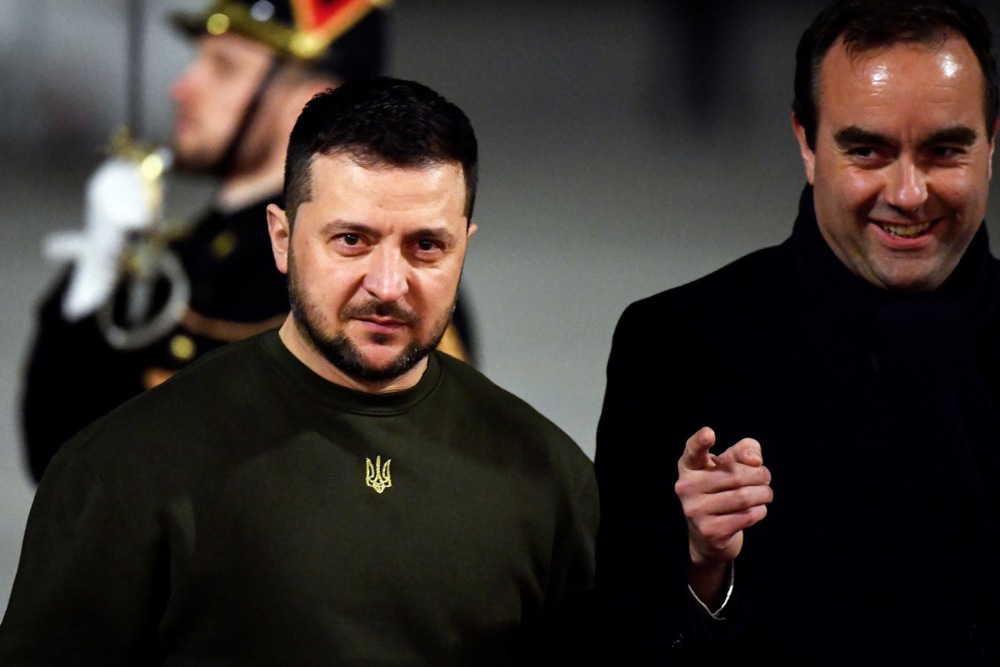French President Emmanuel Macron caused a stir recently when he announced he was considering sending hundreds of troops – in the guise of “military trainers” – to Ukraine, a fact seemingly confirmed by the Ukrainian High Command.
Russia responded sharply, threatening to strike the French should they arrive on Ukrainian soil.
So far, Macron has placed himself out on a ledge, as no other major countries have joined him in offering trainers. While other countries have placed intelligence officers on the ground – one report indicated “there are a lot of people with American accents…in civilian clothes [at the Ukrainian command]” – such a large mission would be the first of its kind.
And there is a reason for that. It is because Macron’s idea is simultaneously arrogant, selfish, and short-sighted. Such a deployment would not only endanger the lives of his troops, but it could also endanger the lives of Western civilians and, ultimately, the very existence of the NATO alliance.
Macron has domestic and foreign reasons for making this move now. Domestically, his party is suffering in the polls. The populist-right and Ukraine-aid-sceptical National Rally party is currently is more than doubling Macron’s Renaissance party in some polls for the upcoming European Union parliamentary elections.
Macron may be thinking that a bold move could consolidate the pro-Ukraine vote behind his banner.
He also likely sees a chance for France finally to achieve dominance on the continent.
For hundreds of years, France has sought to be the leading force in Europe. Under Napoleon, that was achieved, though those achievements were short-lived. From the 1870s until the end of World War II, the country nearly consistently played second-fiddle to the Germans. Though France emerged as a “victor” in World War II, the knowledge that they did so only with American aid left a chip on their shoulder.
During the Cold War, France pursued an independent Gaullist foreign policy, but events like the Suez Canal Crisis and the loss of Algeria showed that the Americans were now clearly dominant on the continent.
But the end of the post-Cold War era has given France new opportunities.
America is increasingly less interested in defending Europe. The United Kingdom left the EU, leaving France as the only member state with nuclear weapons. Germany, though its economy still far outpaces France, has, under Chancellor Olaf Scholz, been paralyzed and utterly unable to provide any real leadership.
This, Macron clearly believes, is France’s moment. By creating a firm ally in Ukraine – like Napoleon once did with Poland – France has a chance to extend its influence across the continent in a way it has not in centuries.
But his actions – call them pride or desperation – are causing him to miss the forest for the trees. In reaching to grab so much at once, Macron will likely watch as it all, like sand, slips from his fingers.
For starters, as mentioned above, Russia has already threatened French troops. Russian President Vladimir Putin likely accepts that the Russo-Ukrainian War has become a proxy war between the West and Russia; as a result, there are always likely to be some Americans surreptitiously active in Kyiv (as there are surely Russians).
But sending hundreds of trainers to train an entire army is an entirely different kettle of fish. That is because of the nature of sending “military trainers.”
History teaches us that this is a euphemism for what is called “mission creep.” America’s intervention in Vietnam started the same way: first, Presidents Dwight D. Eisenhower and John F. Kennedy sent trainers and advisers to their South Vietnamese ally, something which was sold as a limited manoeuvre.
Except it wasn’t. Less than half a decade later, Americans were involved in a full-scale war, in which nearly 60,000 American troops would die.
This history means that Russia will likely seek to dissuade France from sending more “trainers,” potentially through the use of force on those trainers. Putin has already demonstrated a capability to attack anywhere in Ukraine. There is no reason to think that training in western Lviv will keep them safe.
This in turn could seriously endanger the NATO alliance.
Currently, Article V, if invoked by one member state, requires others to come to its aid. But if France has elected to put its own soldiers at risk, would this qualify?
Not only that, but Article V is also extremely vague. It requires each country’s leader to do only what he or she “deems necessary,” which could be as much as nuclear strikes or as little as sending helmets.
If France were to trigger Article V in response to a potential attack on its troops, and no one responded with real aid, it could be a body blow to the alliance.
Lost in this discussion is the fact that the European Union has a defence component as well, one which in some ways is almost stronger than NATO’s Article V. The Treaty on European Union stipulates that, if a member state is “the victim of armed aggression on its territory, the other Member States shall have towards it an obligation of aid and assistance by all the means in their power.”
“Ah,” Macron’s defenders might say, “but this only comes into play if France is attacked on its own territory.” But the problem is that Macron’s brinkmanship has made that a possibility. The French president wants to allow Ukraine to use French, and Western, weapons to “neutralize” Russia’s military bases.
This therefore opens a chilling but very realistic scenario. France orders hundreds of military advisors into Ukraine, with them landing at a base in Romania and then crossing into the Ukrainian border.
Russia fires a missile from a base on Russian territory, striking the French military trainers on Ukrainian soil. Ukraine uses French missiles to eliminate that base, but one goes off track, striking a nearby Russian village, killing civilians. Russia responds by launching a missile at the military base in Romania from which the French military trainers entered Ukraine.
Now NATO has been attacked, and a European Union member state has been attacked on its own territory.
What happens next? Does America become involved? Does NATO strike the Russian base that struck the Romanian NATO post? When do tactical nuclear weapons become involved? Supporters of Macron’s move may attempt to bat these questions away by saying Russia would be unlikely to attack a NATO base, but if the Russian bear feels that its back is up against the wall, it would be foolish to assume that it will not get desperate.
These are real and terrifying questions which the world spent the Cold War attempting to answer. Both the West and the East did all it could to decrease nuclear brinkmanship down. But Macron, desperate to restore French glory, is instead choosing to speed ahead into the nuclear unknown.





The US unmatched in military force, but has no strategy